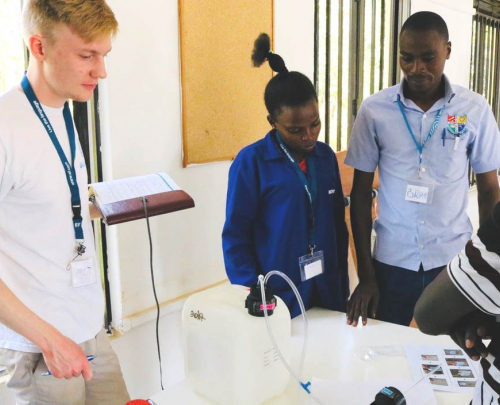
© Shutterstock
South Korea is one of the world’s most intriguing and progressive countries for IoT applications and services. It is one of the most tech savvy nations on earth. On many measures of its research and innovation environment, it is a world leader.
But it can be tough for small, innovative UK companies to gain access into this highly developed market. That is just one reason why EEN is delighted to be taking 12 innovative IoT companies on a second GBIP to South Korea as part of a series of targeted sector visits, all of which are designed to connect internationally-minded innovative companies to potential partners and customers in some of the world’s most exciting markets.
This GBIP visit will help the participating companies gain a richer understanding of the South Korean market and provides the potential for partnership opportunities and to showcase their expertise to a range of South Korean organisations.
Meeting the chaebol
Such connections would be difficult to achieve without EEN’s support as the South Korean economy remains dominated by the chaebol, the vast family-based conglomerates such as Samsung, Hyundai, LG and SK Group. They are deeply embedded into South Korea’s business and wider culture. It is difficult for a small innovative UK company acting on its own to build commercial relationships with a chaebol.
The visit provides small companies with a collective power and appeal to facilitate access into the large and influential chaebol. Indeed, one of the key elements of the GBIP is the opportunity to make presentations to Samsung executives.
Connecting with Korean startups
It is also hard to identify potential partners among the new generation of South Korean enterprises. For startups in South Korea, the traditional path has been towards being acquired by one of the chaebol. However, its Government wants to increase the number of young companies which grow and scale. This presents challenges, as the chaebol tend to acquire and amalgamate rather than sub-contract and outsource. Growth-oriented South Korean companies are hungry for partnerships and channels outside of their home market. Here, too, the GBIP provides important connections.
The aim of GBIP is to help companies overcome barriers when trying to enter complex global markets, providing market knowledge and cultural insight that an individual small company would not be able to generate for itself. EEN is able to do this by working with its extensive network of local partners.
The visit has been arranged working with key partners in South Korea such as EdResearch (our primary partner) and DeltaTech as well as with the British Embassy and the UK Department for International Trade. Seeing that a company has this level of official support is reassuring and provides confidence to South Korean businesses who can be difficult engage.
Pre-visit briefing on South Korea
Prior to the visit, the participant companies are briefed by sector and market experts and hear first-hand from previous delegates about their experiences. They are advised on the cultural aspects of conducting business in South Korea. A take home from a previous delegate is to go equipped with a large quantity of business cards. Assistance is provided to help participants develop their value proposition and define the benefits they bring to the particular market.
Market opportunities
And it is a market with very distinctive characteristics. With its education curriculum, learning techniques and workforce training programmes heavily oriented towards technology, South Korea’s clued-up, hyper-connected population is open to adopting and applying new technologies. This can be seen in the liberal regulatory attitude towards autonomous vehicles, which have already been deployed on the public roads (and were widely showcased at the 2018 Winter Olympics).
The drive towards the use of 5G is also noteworthy; approximately £1bn has already been invested in both its development and in actual use cases and the spectrum has already been sold. In South Korea, 5G will be commercialised by mid-2019. This will enhance the nation’s mobile broadband, provide new opportunities for massive machine connectivity, and provide ultra-reliable low latency connectivity for implementation in areas such as telesurgery and driverless vehicles.
In the area of smart factories and Industry 4.0, South Korea is humming. In the world rankings, it demonstrates very high levels of automation readiness.
There are already some evident ties between the UK and South Korea, such as the strong automotive trade between the two countries: the UK is the largest EU new car market for Korean brands, while Korea is the UK’s third biggest Asian export market. One thing for sure, is that the companies on the GBIP will be in a better place to develop these opportunities as a result of their visit.






